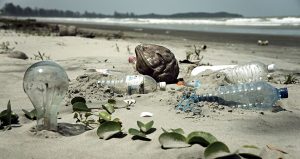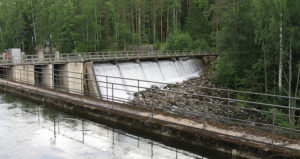European drinking water suppliers call for extra protection rivers

-
 Esther Rasenberg
Esther Rasenberg
Share article:
The European Coalition of Drinking Water Suppliers call for extra river protection. They want transparency in discharges, strict entry requirements for chemicals and the implementation of the polluter pays principle. In a Memorandum they set out minimum quality standards for a sustainable drinking water supply for 188 million citizens living in the river catchment areas of the Rhine, Danube, Elbe, Meuse, Scheldt and Ruhr.
The memorandum wants to assist and guide decision makers in authorities and political bodies with regard to the continuing necessity to improve the quality of water used to produce drinking water. The drinking water suppliers point out the standards of the Water Framework Directive are not sufficient to produce drinking water. If water quality will not improve it will become hard and more expensive to produce drinking water from surface water.
More protection is needed
President of the International Association of Waterworks (IAWR) in the Rhine Basin, Matthias Maier, points out the current situation of drinking water suppliers: “The greatest threat to the long-term provision of clean, natural drinking water is the contamination of water resources with chemicals. A large number of substances are introduced into the water cycle by human activities. From the water suppliers‘ point of view, the inputs are not sufficiently controlled. In some cases, the substances can only be removed to a limited extent with existing drinking water treatment technologies. Climate change is changing the water cycle, therefore the remaining drinking water resources must be protected more intensively in order to adapt.“

Overview of ERM River basins. Image: ERM-report
Strategies required to meet target values
In the European River Memorandum, the coalition partners propose ten strategies required to meet the target values. These strategies are diverse. Drinking water must take priority over competing usage claims (1). Measures should be taken at the source of pollution (2). Available water resources must not be overstressed and therefore tolerable maximum concentrations and temperatures must not be exceeded (3). The water quality of water bodies must not deteriorate but has to be improved for reasons of precaution (4) . Monitoring of water bodies is a task of authorities that must be continually adjusted to new findings (5).
Industry has to take responsibility
According to the memorandum not only water authorities have to act also the industry has to change. Manufacturers must take responsibility for the substances directly or indirectly emitted by them. The existing statutory prohibition subject to authorisation needs to be enforced: ‘What has not been permitted, shall be considered forbidden’ (6). Operational incidents as well as incidents in industrial plants may cause considerable pollution of water bodies with hazardous substances and microorganisms. The goal must therefore be further improvement of incident prevention (7). For precautionary protection of drinking water, all substances and their degradation and transformation products should be reviewed and assessed for their persistant, mobile and toxic properties before approval or registration (8). The hygienic microbiological pollution of water bodies has received little consideration so far. Specific treatment methods are required to improve this dissatisfactory situation (9). Application and disposal of potentially harmful substances and their effects on the environment must be considered during product development. And they need to be made transparent and communicated during marketing. (10)
















